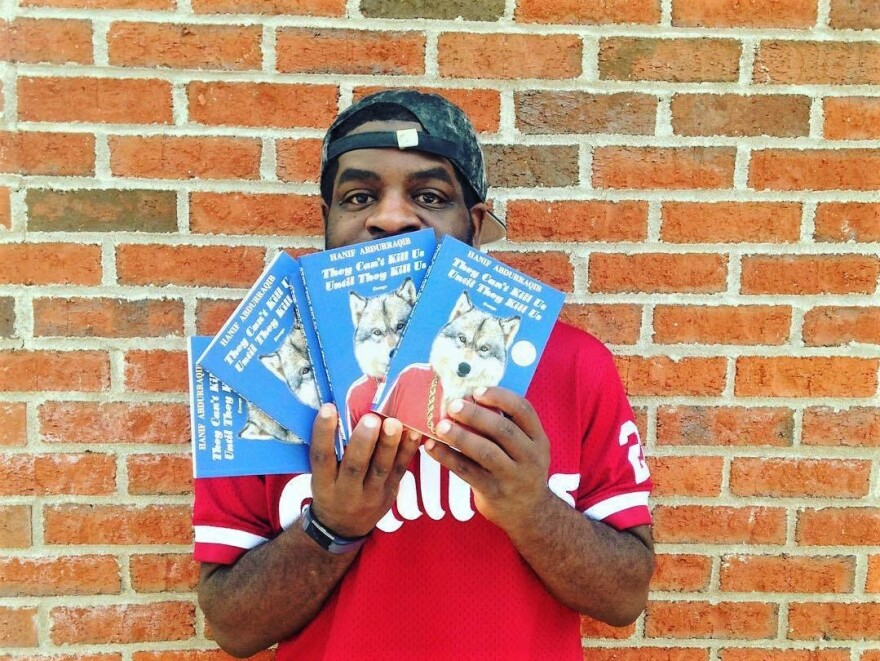Hanif Abdurraqib, the author of the acclaimed essay collection They Can’t Kill Us Until They Kill Us, announced a two-book deal with Random House last month. But the vote of confidence from a major New York City-based publisher hasn’t lessened his dedication for his home city of Columbus.
“I grew up in the '90s with a lot of coastal narratives," Abdurraqib says. "Especially narratives around young black people, there were a lot of narratives coming out of the West Coast, and the East Coast in film and literature, particularly in music. And I wanted to kind of build a world where those stories were at a premium here, in the Midwest, and particularly in Columbus.”
So he did. In They Can’t Kill Us Until They Kill Us, published by the Columbus-based indie press Two Dollar Radio last November, Abdurraqib examines the intersection race and music in the Midwest in a series of critical essays. They're often set in concert halls or in the passenger seat of cars meandering around Central Ohio streets.
In an essay that reflects on the success of Columbus-based band Twenty One Pilots, he writes that Columbus “overflows with talented people who don’t always know where to place their talent.” Abdurraqib himself overflows with talent: His writing straddles, poetry, memoir, and cultural criticism, as if one format isn’t enough to express the breadth of his thought.
He wrote the bulk of his first book, and a portion of his second, in Connecticut, but says Columbus inspires him too much to stay away.
“I moved back in April of last year, and I think I’ve been more productive and more eager and more inspired by the movements of the city," Abdurraqib says. "A thing that I really love and don’t love about Columbus is how rapidly it changes. A big part of what drives me and what inspires me is to archive the city before it shifts.”
Abdurraqib's intimate understanding of Columbus is borne from the loyalty of a native. In one essay, he writes, “I still find myself always considering the place I’m from and the pressure and expectations that come with that.” These days, that connection to home also means what he calls “the comfort of knowing your architecture.”
“For me as someone who is often anxious and whose mind is often running at a million miles an hour, to know exactly where I am and to be grounded in that is very comfortable," he says.
Next for Abdurraqib is a book of poetry in 2019, then a book of essays about the history of black performance titled “They Don’t Dance No Mo'” for Random House.






